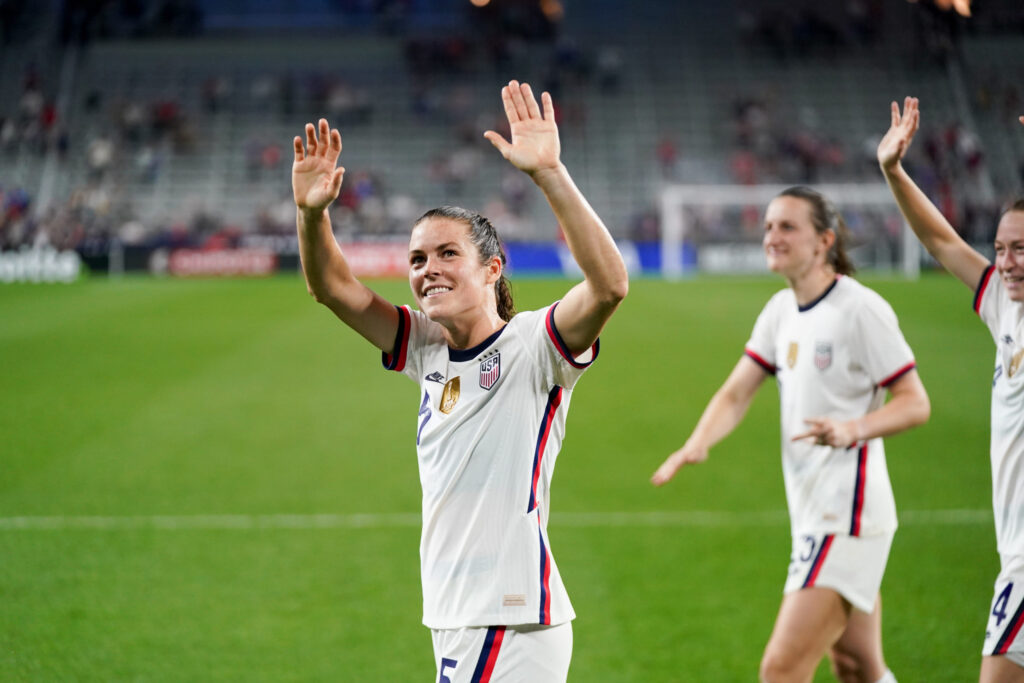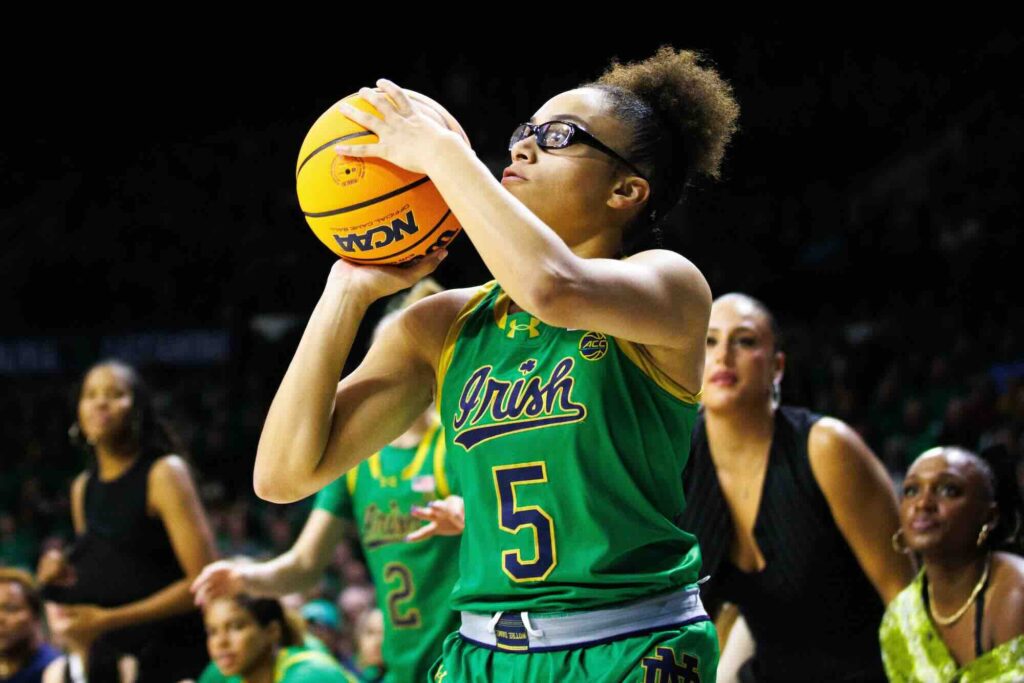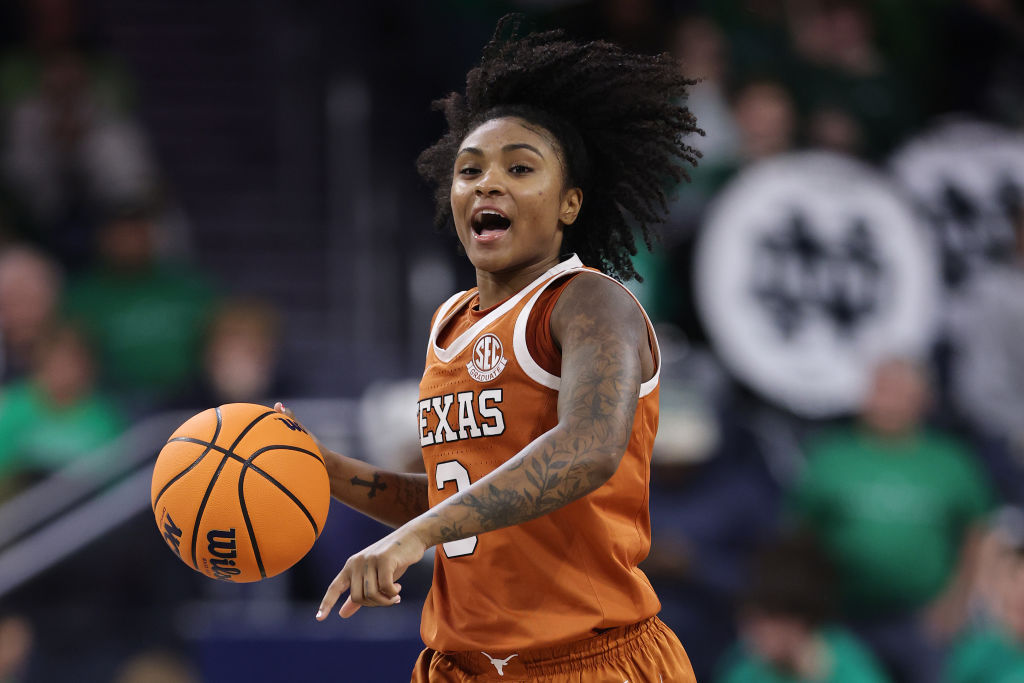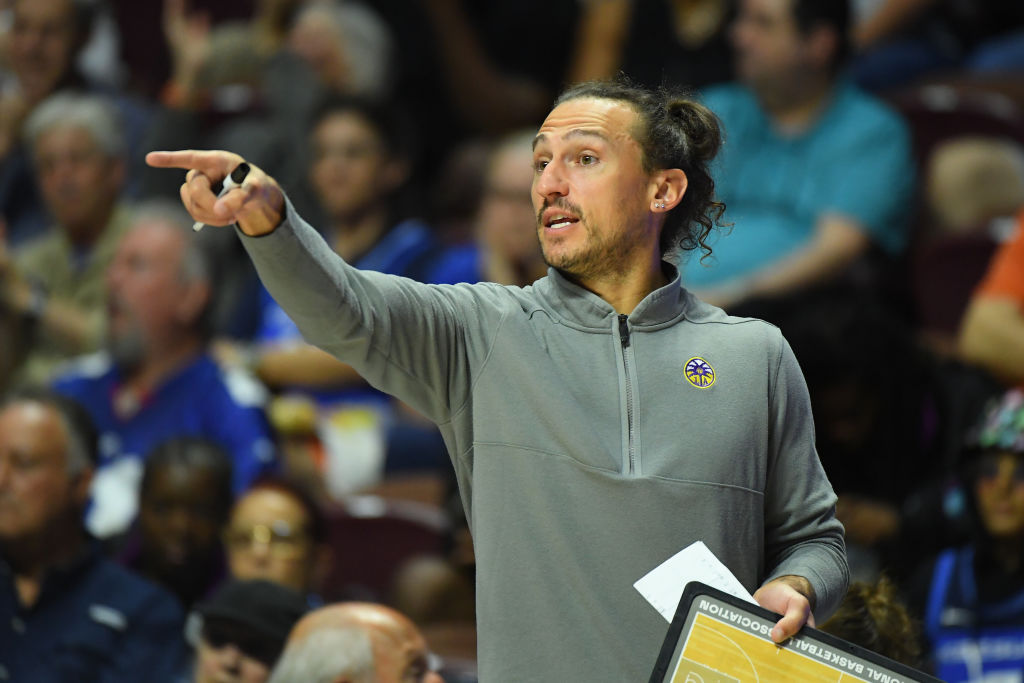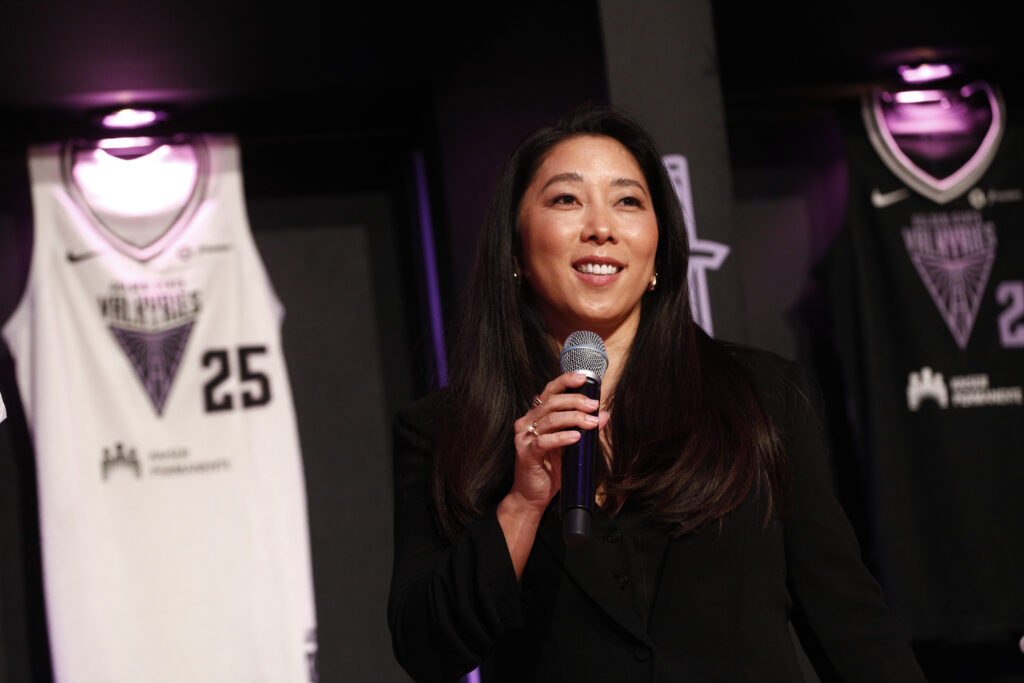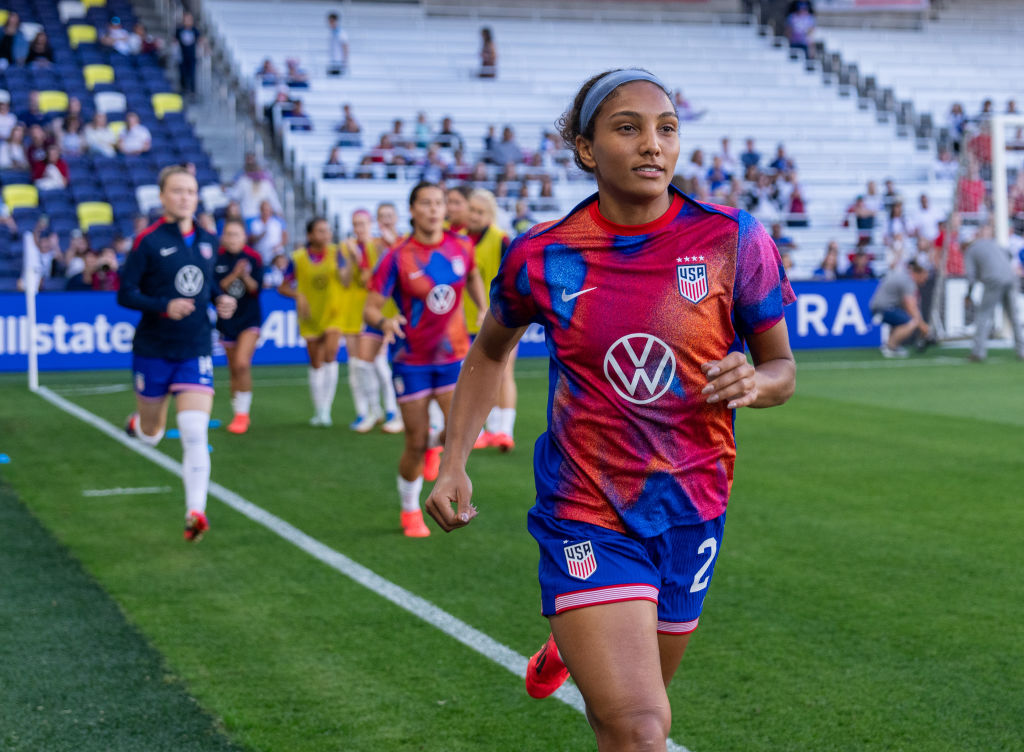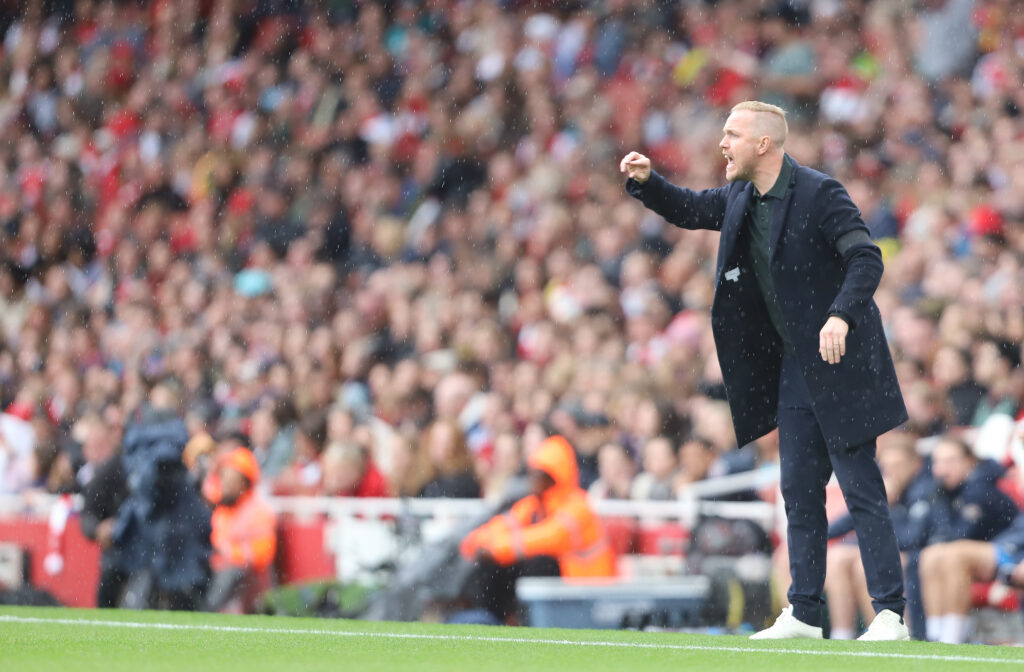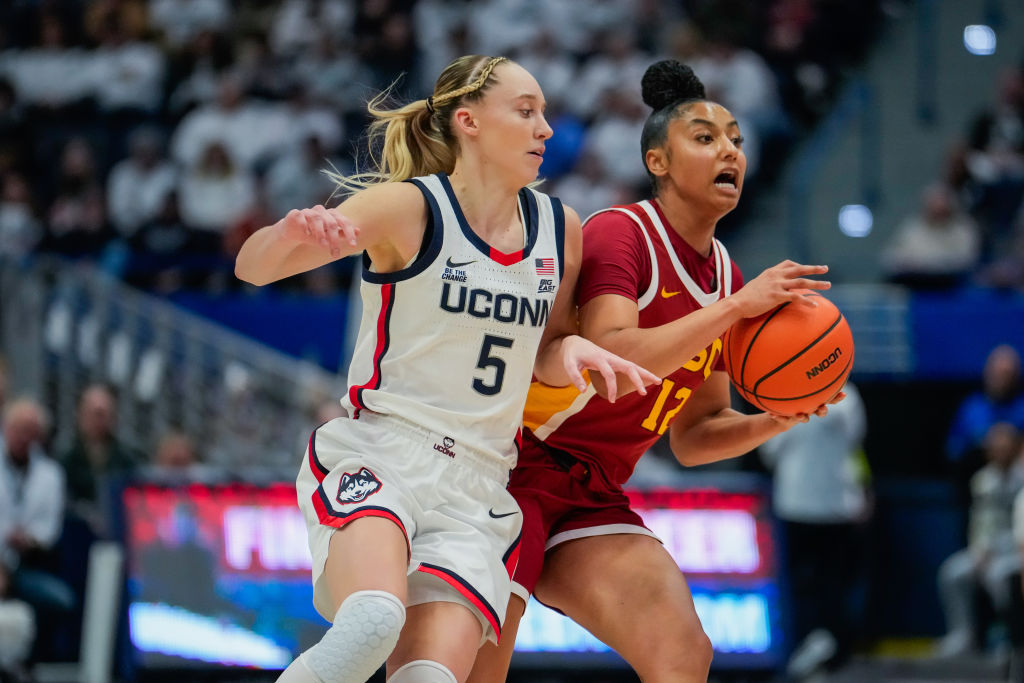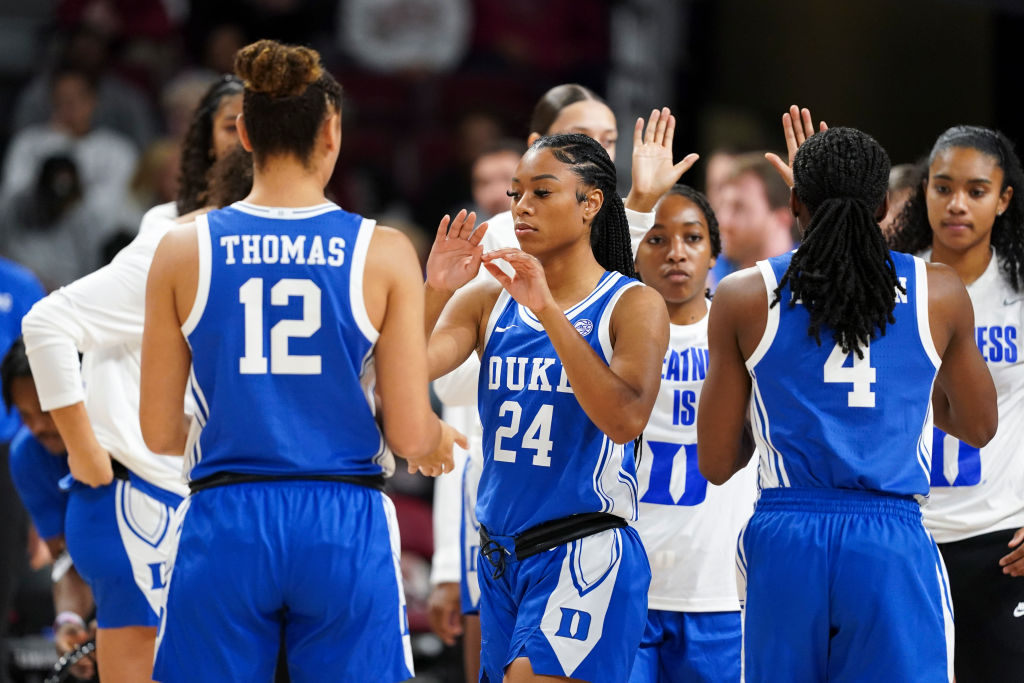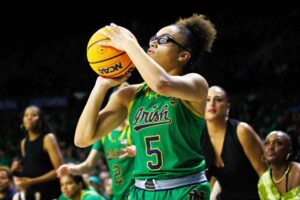Equal pay has been a decades-long battle in women’s sports, and no fight has been more prominent in the recent history of Title IX than that of the United States women’s national soccer team. One generation after the next of USWNT players inherited cycles of frustrating contract negotiations, eventually prompting five USWNT players — Carli Lloyd, Alex Morgan, Megan Rapinoe, Becky Sauerbrunn and Hope Solo — to file an official wage discrimination complaint with the Equal Employment Opportunity Commission in 2016.
Three years later, the entire USWNT roster filed a gender discrimination lawsuit against U.S. Soccer just a few months before the 2019 World Cup began in France.
“We’d been asking for a long time, and we finally got to a point where we decided to take matters into our own hands,” Kelley O’Hara told the filmmakers of “LFG,” a documentary on the lawsuit from several players’ perspectives.
O’Hara, a two-time World Cup champion and Olympic gold medalist, has been a member of the U.S. senior national team since 2010. A prolific scorer in high school and college, she transitioned to defense shortly into her national team career and is now a veteran pillar of the backline.
“To be honest, in the beginning of my professional career I was happy just to be able to play. To me, it wasn’t about money,” O’Hara recalled last fall on Under Armour’s Sweat the Details podcast. “It was, I get to do this as a job and get paid. It’s great that I get paid, but I’m not that concerned about the money. That was me being naïve and also young and fresh out of college.”
As her confidence grew and she endeavored to make a living as a pro athlete, O’Hara became keenly aware of the inequities between the men’s and women’s national teams, as well as the broader systemic issues that women’s professional sports. She has never been one of the first names listed in the media as leading the charge for the USWNT’s equal pay fight, but she has been a driving force behind the scenes.
That’s likely because O’Hara has always been much more interested in action than words.
“You can complain all you want about something. You can talk about it until you’re blue in the face, but if you’re not willing to put in the time and the steps and the plan to say, how do we go from point A to point B, no one else is doing it for you,” she said on the UA podcast. “Don’t tell me the flood is coming or the flood is here. Start building the ark.”
O’Hara hasn’t filled her social media accounts with commentary about their fight for equality. She lets her teammates — such as Megan Rapinoe, Becky Sauerbrunn and Alex Morgan — be the more public voices of the group. But she has been instrumental in pushing the fight forward. It’s probably the role best-suited for O’Hara, whose fiery passion comes out in the heat of competition.

“People were very frustrated and very angry, and Kelley O’Hara probably would toss a table if she could,” Sauerbrunn described in LFG, recalling the point at which mediation broke down between the team and U.S. Soccer. “You always need a little crazy in your team, and she brings the crazy.”
The players’ decision to file their lawsuit right before the 2019 World Cup was intended to capitalize on the tournament’s spotlight, but it was also incredibly bold. Anything other than a World Cup championship would have been deemed a failure for the No. 1 team in the world, giving power to their critics and potentially weakening their argument against U.S. Soccer.
The USWNT’s run to the title in France held meaning far beyond soccer, and everyone following along knew it. Chants of “equal pay” broke out in the stadium after they defeated the Netherlands 2-0 in the final, and continued along the streets of their ticker-tape victory parade in New York City.
The generations of women who’ve played for the USWNT have always recognized their place in the big picture. Each group knew they were fighting for future generations more than themselves and for women’s equality beyond just soccer. The team has become a powerful emblem of progress for women, regardless of the individual names on the current roster. Countless women across the sporting landscape have looked to the USWNT for guidance, collaboration and support in their own battles for better treatment.
We won’t stop pushing for what we know is right #USWNT https://t.co/kYy7Q0ps4X
— Kelley O'Hara (@kelleymohara) May 2, 2020
Julie Foudy, one of the USWNT’s most iconic leaders, has served as an advisor to the U.S. women’s national hockey team that threatened to boycott the IIHF World Championship in 2017 over fair wages and support from USA Hockey. Their strong stance garnered vocal support from the USWNT, up and down the roster, and led to a landmark new agreement with USA Hockey.
“They continuously set the market for women all over the world,” U.S. hockey player and two-time Olympic medalist Kendall Coyne Schofield has said of her soccer counterparts. “They are the epitome of trailblazers in a team-sport setting.”
When basketball coach Dawn Staley signed a ground-breaking $22.4 million contract with the University of South Carolina last year, she revealed that watching LFG motivated her to push for more than she otherwise would have because of what it represented on a higher level.
“I watched it and it gave me the strength that I needed to keep pushing through,” she told Good Morning America. “It’s our time in women’s sports and women in general. It’s our time.”
The broader symbolism the team came to represent never would have happened without the blood, sweat and tears of individual players mining for every inch of progress.
When the USWNT eventually settled their lawsuit with U.S. Soccer for $24 million in February, it was dependent on the ratification of a new collective bargaining agreement that included equal pay between the men’s and women’s national teams. But it was still unclear how the USWNT, USMNT and U.S. Soccer would compromise on an equal pay structure. Negotiations for the women’s new CBA had already been well underway, with 35 sessions held prior to the settlement announcement.
As a member of her USWNT Players’ Association bargaining committee, O’Hara and four of her teammates were charged with achieving this never-before-seen level of collaboration. Despite her grave disappointment with U.S. Soccer’s lack of effort during the mediation proceedings for the lawsuit, O’Hara was back at the table with them.
“I’m hopeful. I’m always hopeful, even when it bites me in the ass,” she admitted on Sweat the Details.

O’Hara’s optimism appears to have served the negotiations well. The three groups made history last month when they announced historic new CBAs equalizing FIFA World Cup prize money between the two teams, something no other national soccer federation has ever done.
When she’s not at the negotiation table fighting for equality or on the field with the USWNT or her NWSL Washington Spirit team, O’Hara is building the ark to fix inequality in the media coverage of women’s sports. As we approach the 50th anniversary of Title IX, which opened doors for women everywhere to participate in sports, O’Hara’s influence on the next generation is even more evident.
“I think my biggest thing with gender inequity in sports is the coverage and the visibility. If that can change, I think it could do incredible things for women’s sports. For instance, 4 percent of media coverage goes to women’s sports,” she lamented.
As the host of her own podcast, The Player’s Pod, where she gives women across sports a platform to share their stories, and as an early investor in Just Women’s Sports, O’Hara continues to be an inspiration of solution-focused energy in the face of inequality.
“There’s an issue here and we need to fix it. And we need to be part of fixing it,” she said. “If we don’t do that, no one else is going to do that.”
Tessa Nichols is a contributing writer at Just Women’s Sports.
